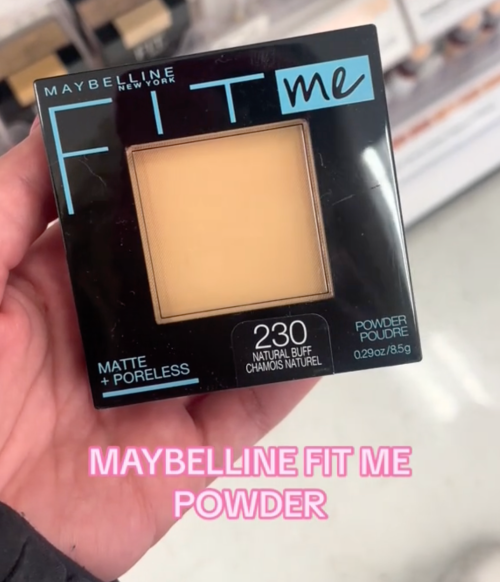
The product recommendations in this post are recommendations by the writer and/or expert(s) interviewed and do not contain affiliate links. Meaning: If you use these links to buy something, we will not earn a commission.
When it comes to keeping your skin clear, mostly everyone knows that the cardinal sin is not washing your makeup off at night. However, even if you never sleep in makeup and religiously follow your skincare routine, the beauty items you choose could still be clogging your pores and leading to acne. In a new video on TikTok, licensed esthetician Paige Watkins reveals the makeup that can cause breakouts. Read on to learn about the popular items—from e.l.f. foundation to Supergoop sunscreen—that you may want to avoid if you notice pimples popping up.
RELATED: Dermatologists Share the Best Drugstore Skincare Products: “Anything More Is Not Necessary.”

One important “disclaimer,” as Watkins captioned her video: “Some people wont breakout, some will!” In other words, these aren’t makeup items that need to be universally avoided but ones that contain possible “pore-clogging ingredients.” And it also doesn’t mean that the brands are necessarily using bad or unsafe ingredients, just that they may not agree with everyone’s skin.
With that in mind, the first “trending product” that Watkins says can cause acne is Maybelline’s Fit Me Powder, which she points out contains the pore-clogging ingredient talc.
According to the Food and Drug Administration (FDA), “Talc is a naturally occurring mineral” that is often used in cosmetic products “to absorb moisture, to prevent caking, to make facial makeup opaque, or to improve the feel of a product.”
In an unrelated Instagram video, dermatologist Ramya Garlapati, MD, explained that makeup powder containing talc “doesn’t blend easily and sits on top of the skin, soaking up all the oils you produce throughout the day.” She says the makeup then tends to “clump up and clog pores, leading to inflammation and acne.”
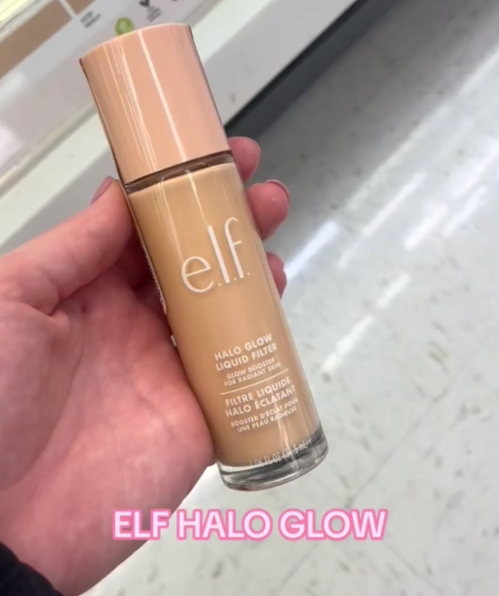

Next, Watkins notes that e.l.f. Cosmetics’ Halo Glow Liquid Filter contains bismuth (Bismuth Oxychloride, to be exact, according to the company).
Bismuth oxychloride is an inorganic compound that’s used to give makeup a pearlescent sheen. And according to a video posted by SkinTherapy Skincare & Acne Clinic, it can irritate the skin and “make inflamed acne worse.”
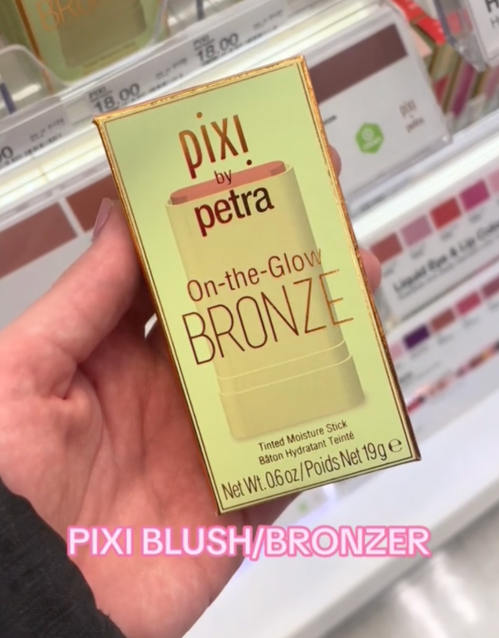

Pixi’s On-the-Glow Bronze is a tinted moisture stick that can be used on cheeks and lips. Though the brand notes that the product is “formulated with Fruit Extracts for superb antioxidant protection,” Watkins says it can clog pores due to its castor oil content.
This is a very specific case, however. Castor oil itself is often used to treat acne since it “is shown to help restore the lipid balance within the skin” and “it’s non-comedogenic, so it won’t clog pores and trigger breakouts,” as Valerie Aparovich, a certified cosmetologist-aesthetician, biochemist, and science team lead at OnSkin, explained in a previous Best Life story.
However, it is very dense and thick, which can lead to clogged pores on certain skin types.
RELATED: Never Buy Skincare Products With These 5 Ingredients, Dermatologists Warn.
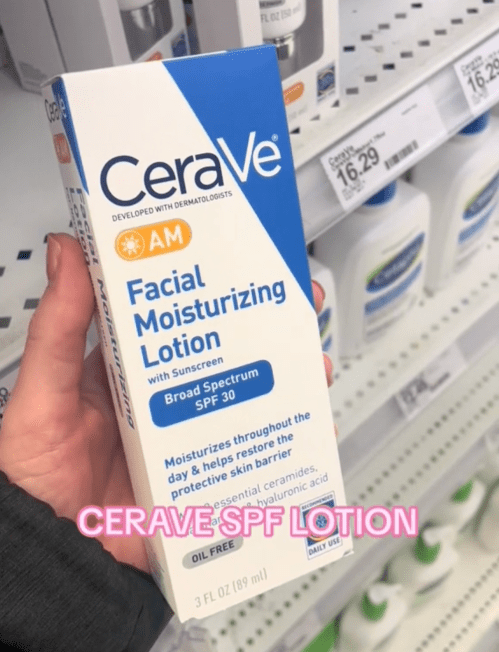

Dermatologists consider CeraVe a top drugstore skincare brand. However, some people may be sensitive to the moisturizing lotion’s starch content, according to Watkins.
CeraVe’s website lists “aluminum starch octenylsuccinate” as an ingredient for this product. The nonprofit Environmental Working Group (EWG), which runs the Skin Deep program to educate consumers about the ingredients in their self-care products, says this ingredient is generally safe in cosmetics. But Watkins includes it on her list of pore-cloggers.
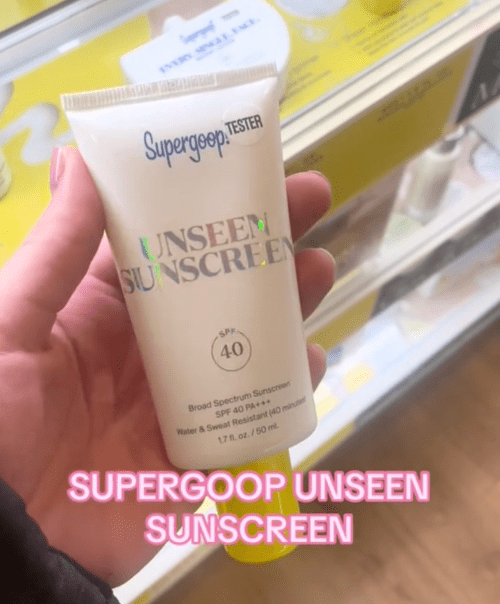

Perhaps no sunscreen brand has gotten as much hype in recent years as Supergoop. The influencer-loved brand sells invisible, lightweight sunscreens, as well as tinted versions that can take the place of your foundation or bronzer. Their products are also “cruelty-free and made with feel-good ingredients,” according to their website.
However, Watkins says that the shea butter in one of Supergoop’s most popular products, Unseen Sunscreen, could clog your pores and lead to breakouts.
We should note that shea butter is a non-comedogenic ingredient. But as esthetician and acne specialist Ella Elston explained in a TikTok video, there is a comedogenic scale that rates ingredients from 0 to 10, with 10 being the most likely to clog your pores and cause acne.
Elston recommends staying away from anything that’s a 1 or above on the scale if you’re acne-prone. “Shea butter ranges from a 0 to a 2 depending on the formula that it’s in,” she explains.
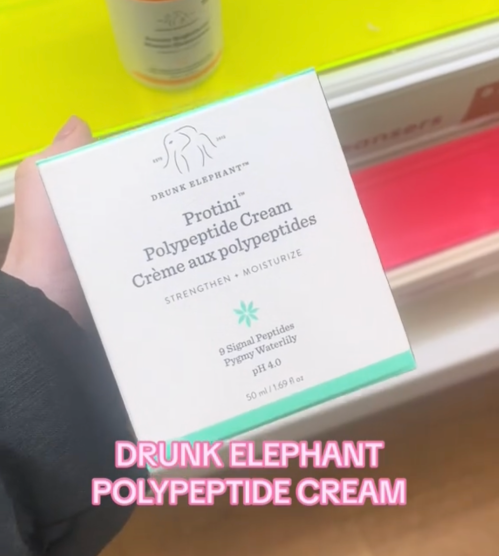

Like CeraVe, Drunk Elephant is considered a “clean” skincare brand. But Watkins says its Polypeptide Cream still contains three possible pore-clogging ingredients: sclerocarya birrea, coconut alkanes, and coco-caprylates.
Sclerocarya birrea is more commonly known as marula oil, which is a natural, lightweight ingredient high in amino acids, fatty acids, and antioxidants, all of which make it beneficial to the skin, writes Healthline. However, as mindbodygreen notes, it is comedogenic, so it can clog pores.
According to Aesthetix Dermatology of Fort Lauderdale, coconut alkanes “are virtually synonymous with coconut oil,” and it’s well known that coconut oil can clog pores since it’s such an occlusive ingredient. Coco-caprylate is also derived from coconut oil.
RELATED: 9 Eye Makeup Trends You Should Never Try, Doctor Says.
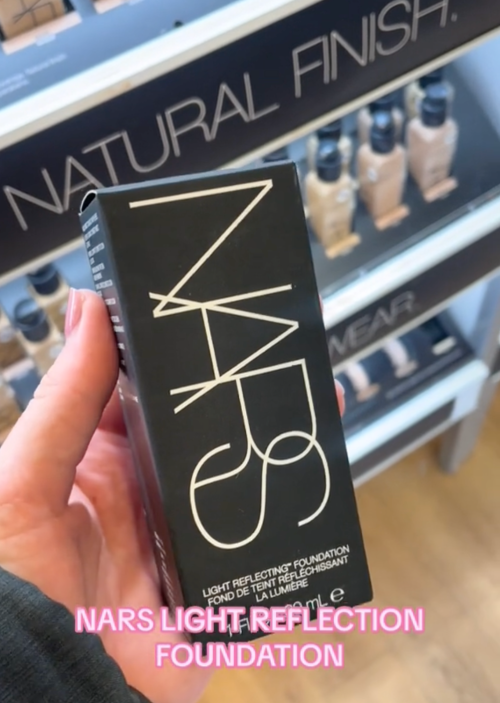

The Nars Light Reflecting Foundation also contains coco-caprylate, as well as ascophyllum nodosum extract, which is an ingredient derived from brown seaweed that Watkins says is pore-clogging.
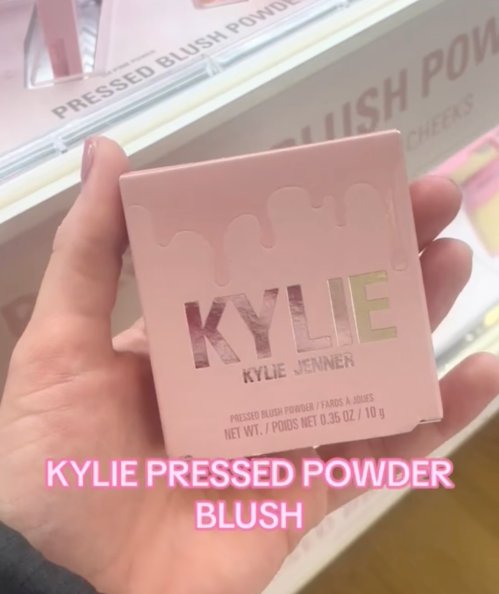

There’s no arguing with the popularity of Kylie Jenner’s namesake makeup line, but when it comes to the Pressed Powder Blush, be aware that it contains bismuth and Red 30, notes Watkins.
We’ve already discussed bismuth, but Red 30 (D&C Red No. 30 or Red 30 lake) is “a synthetic dye produced from petroleum or coal tar sources,” according to EWG. “This dye is FDA-approved for use in pharmaceuticals and cosmetics.”
However, as dermatologist Rachel Nazarian, MD told Byrdie, “Perfumes and dyes can cause irritation that shifts skin’s pH and increases inflammation. This could lead to inflammatory acne-like lesions.”
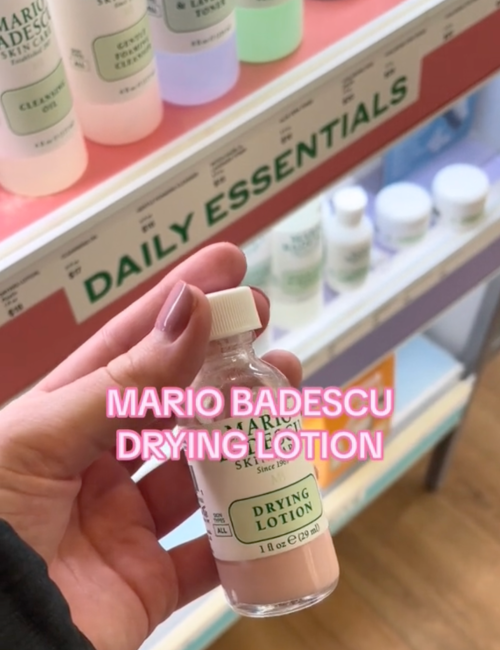

Mario Badescu’s popular Drying Lotion, an “on-the-spot acne treatment solution,” is another product that contains talc, notes Watkins.
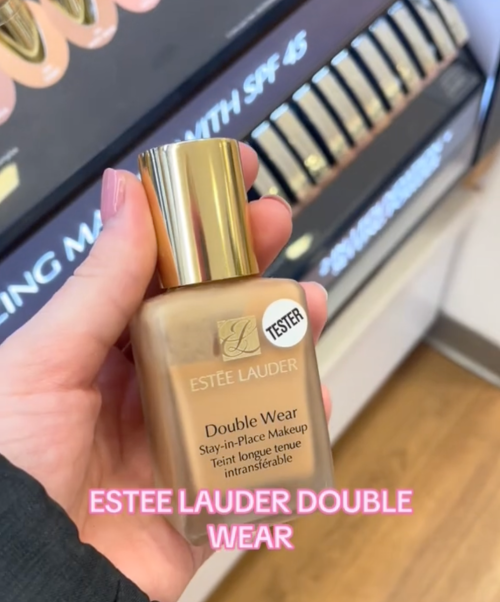

Finally, Watkins says to avoid the Estée Lauder Double Wear foundation if you’re prone to breakouts. She points out that it contains the pore-clogging ingredient polyglyceryl-3 diisostearate.



